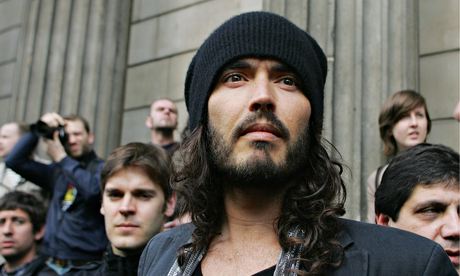
English is an island language; a language built by the words washed up on our shores from other lands, other times. It is, as one 14th century monk observed, "wlaffyng, chytering, harryng, and garryng grisbittyng". It is irregular, contrary, crooked as our teeth. It does not behave.
And so it was rather satisfying to read about its latest mischief this week: the OCR exam board, together with the educational charity the English and Media Centre, has drawn up a new syllabus for an English language and literature A-level that will include the study of a 2008 Newsnight interview with Dizzee Rascal, Russell Brand's testimony on drug use to a parliamentary committee, and Caitlin Moran's Twitter feed. There was alarm, outrage, feathers spat; a senior source at the Department for Education labelled the whole thing "rubbish."
Of course the OCR syllabus will also draw on more traditional texts – the works of Charlotte Brontë, George Orwell and William Shakespeare are there, as is the poetry of Emily Dickinson and William Blake and the Diary of Samuel Pepys, alongside more contemporary work from Jez Butterworth, Jhumpa Lahiri and Marjane Satrapi's graphic novel Persepolis.
But these were not the texts that grabbed the headlines. "It is extremely patronising to young people to claim that they will only engage with English language and literature through celebrities such as Russell Brand," the source added.
Many years ago, when I was choosing my A-levels, I decided to study English language and English literature as separate subjects. They were very different courses, and as much as I had a love for poetry and plays and novels, I also had a love for the words themselves – for where they came from and how they worked. I wanted to look at what Robert Frost once referred to as the "reaching-out toward expression" and dissect its sinews and tendons.
While we spent literature classes discussing Othello and the poetry of UA Fanthorpe, in English language lessons we took apart the words themselves, played with phonetics, syntax, morphology. We learned about the evolution of our language, the history of its regulation, printing, pronunciation. We studied adverts, magazines, newspapers. We listened to radio jingles, documentaries, plays. We looked at speeches, children's literature and romance novels. And I remember the excitement of those classes, the thrill of understanding the force of words.
Teaching young people English is not a matter of taming Calibans. It is about teaching them the power of language, its functions, its rhetorical devices, all of the ways and settings in which it can be used.
And so these new texts on the OCR syllabus do not remotely startle me. Though I sat my A-levels long before the dawn of Twitter or the rise of Russell Brand, I'm sure we studied their equivalents as examples of contemporary language.
Were I teaching that syllabus I would welcome the collision of registers in Paxo's meeting with "Mr Rascal", I would gladly cite Caitlin Moran's Twitter feed for its irreverence and informal wit, its ability to conjure intimacy even when speaking to a large audience, and its display of all the new rhetorical devices that have evolved out of a 140 character limit.
I don't know what most teenagers think of Brand, but I'm sure he is a figure many A-level students will recognise. They may also be familiar with his use of language – the linguistic dance he delights in taking, which sometimes works and sometimes doesn't but, whichever way it sways, is always captivating.
And what is interesting about the chosen OCR text is that his testimony to the parliamentary committee on drugs allows us to see a flamboyant language-user in a more formal setting – how that language shifts, yes, but also how formal language need not be boiled dry and juiceless.
One of the most vital things I learned from my English language A-level came from the linguist Professor Jean Aitchison, whose lectures I later attended at university. Aitchison cautioned against ever holding on to the "crumbling castle" view of the English language – that it was a once-fine structure now in the process of decay.
She encouraged people not to think of language as bricks and mortar, a monument to be preserved, but as something in the course of its own evolution – whether through poetry or prose, TV interviews or Twitter feeds.
It is in this spirit that the OCR syllabus is set – a spirit I hope all English A-level students come to share: that our language is a muscular, pulsing thing, wild, and alive and forever reaching out toward expression.

